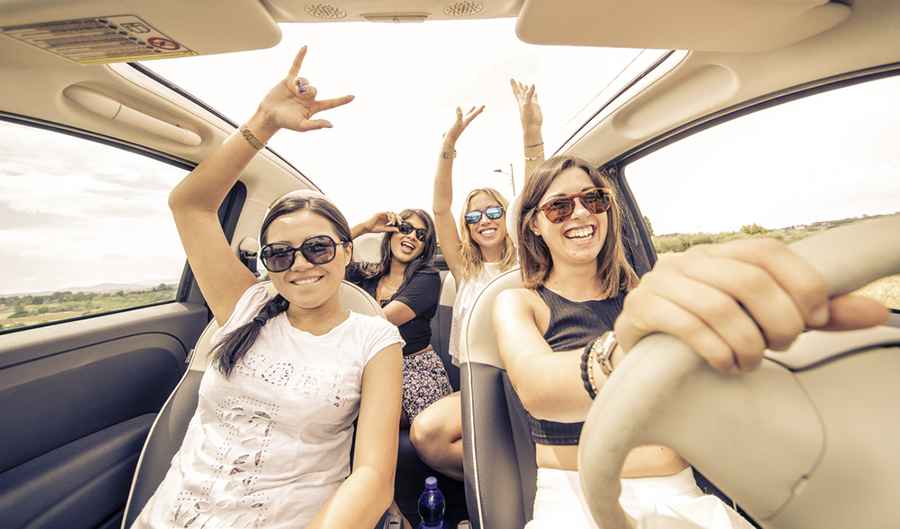Paying for things on the road
Exploring a new country by road can not only be exhilarating but intimidating as well. As it is, you must have spent a sizable chunk of your money, not to mention time, just on trip planning and preparation, not to mention things like bookings, car rental, activities and accommodation.

All these things require a lot of thought as to how you will handle the expenses while on the road and whether to use cash or credit card while driving from one state to another. Believe me, the best time to think about how to pay money while on the go is before you start spending it.
Assuming you are a citizen of another country, apart from some miscellaneous costs of travel, you must keep some other things in mind before, during and even after your trip like foreign exchange rates, foreign transaction fees and ATM fees on your planned road route.
Only after that, you will be able to decide whether it is better to use cash, credit card or some other mode of payment while behind the steering wheel.
Prepare a road trip budget
Budget planning may seem the least enjoyable part of planning a road trip, but believe me, these nitty-gritty financial details will bail you out if something went wrong and you have to call on your financial reserves.
To begin with, think of all the areas you are heading to in which you will need to spend money on the trip. From car breakdowns to diversions, natural calamities, anything can happen.
Cash or Card?
Credit card, debit card or cash in local currency, are the most common modes of payment for travel, for example, when on a road trip in the USA. A lot of road-trippers prefer taking cash from the local ATM to save on exchange fees and card fees.
On the flip side, some travelers consider carrying cash unsafe and instead rely on credit cards as they are safe, and reliable and earn them valuable points in their account which can be used for future purchases.
Additionally, some cards offer roadside assistance benefits, which can save you on towing or any calamity on the road. If you are traveling in a large vehicle, use credit cards that include rental car insurance coverage.
If you forget everything, the general guideline says to use a credit card for purchases and your debit card for cash, as a majority of credit cards charge an extra fee for withdrawing cash.
How to access cash on the road?
Everyone accepts the fact that cash is king, therefore one should carry at least a bit of the local currency, say $200 in the US, at all times no matter where you go. Again since cash is easy to get stolen, carry a limited amount so that a small loss does not devastate the rest of the road journey.
To access cash without incurring any unnecessary expenses:
- Exchange your cash before arriving in your destination country
- Don't exchange money at the airport or near tourist sites
- Use an ATM machine to avail of the best exchange rate
Other modes of payment
The romance of paying with traveler's checks may be a thing of the past, but their worth still lingers on, as they still come in handy if you get robbed.
While hotels do not accept them anymore, the bank is the only place you can change them. So carrying a few to help you out in a pinch is not a bad idea.
The Cash Passport card from Travelex is basically a prepaid card, especially geared for the international traveler. Just load it up before you go and then collect or spend cash without any worry on the road. Note this card also charges a transaction fee, but they offer purchase protection.
How best to pay for your road trip?
The road trip may be the fun part of a journey, but figuring out paying for everything isn't:
Gas: No matter which country you are traveling to, petrol takes up a sizable part of your budget. Since you know you are going to pay for fuel, find a fuel card where you get the best rewards for the gas you are purchasing.
Driving is less expensive than flying, but there are often unforeseen expenses that you might not expect. Include a feature like a GPS or a satellite phone if you are going to be in a remote place or in the mountains where there will be no signal.
Bottom line - Carry some cash
With ATMs available across the country and credit cards being accepted in most places, there seems to be a need to fill your wallet with bucks. However, paying for gas in cash offers significant discounts, and a roadside farm may sell tempting goods on a cash only basis.
Additionally, you may be traveling in remote areas or mountain roads during some part of your trip and God forbid there is a breakdown or an accident and you don't have cash on hand to pay for the tow truck or repairs.
(Finally, do sign up for AAA, if you are an American. This auto club will come to your rescue if you have a breakdown or flat tire, plus being a member gets you good discounts in hotels and restaurants).
Image credit: Depositphotos